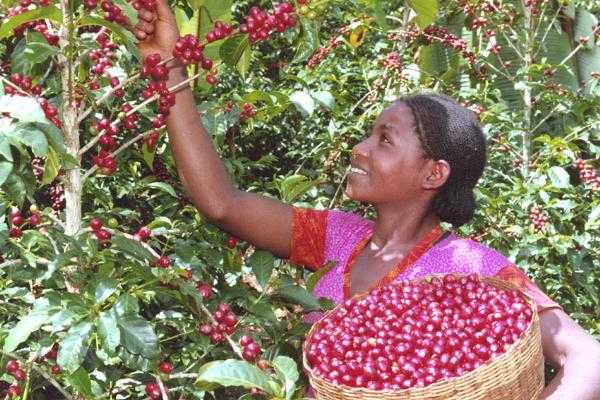In September 19-year-old Fekerte Demele started a jeubeuna bunna in a small bar, where she roasts coffee beans over red hot coals before grinding them and pouring the powder into a small black clay pot filled with water to then be placed on the coals.
“If the business can grow, I want to rent a room on my own and to buy furniture for it,” she said.
She previously worked as a waitress in a nearby bar, where she earned about 2,500 birr ($125) a month with tips. She doesn’t expect to earn much more from her coffee business initially, but the shorter work hours are more amenable, she explained.
Another benefit is an enthusiastic customer base.
“I never go to cafes,” said 36-year-old Fitsum Berhe, one of Ethiopia’s returning diaspora, who spent years in Ireland. “It’s not about saving money. It’s about quality.” He added that he likes seeing beans roasted and knowing he’s drinking the real deal
Despite being staunchly proud of their coffee heritage, Ethiopians are not impervious to a touch of Western-style hipness. A popular and continually expanding cafe chain in Addis is Kaldi’s Coffee, where customers order short and tall coffees, its green and white logo inspired by Starbucks.
Though such is coffee’s popularity in this coffee-mad country, the birthplace of arabica coffee, that it appears there’s plenty of room for expansion, be it locally or foreign driven.
“Ethiopians love coffee, and anytime a new cafe opens, it’s packed,” said Adam Overton, a coffee entrepreneur based in Los Angeles and Addis with a coffee farm in southwestern Ethiopia. “You could probably have three cafes on every street corner and they’d all be full.”
And extra cafes won’t necessarily undercut traditional businesses.
“We plan to start having jeubeuna bunna at our cafes,” said Tsegaye Fanta of Alem Bunna, another of Addis’ coffee companies. “People grew up with it. Many prefer its taste.”
That would appear good news for the lady at the roadside pouring coffee for construction site workers and for the owner of a sparkling new cafe on Bole Road where the city’s bright young things like to hang out. Climbing the economic ladder of the coffee industry will remain an option.
“When I’m at the Addis office, we always order jeubeuna bunna from a lady on the street nearby,” Overton said. “She brings it in on a tray with incense burning. Only in Ethiopia can you get coffee like that.”
ARABICA IN ADDIS ABABA – Climbing the coffee ladder in Ethiopia














